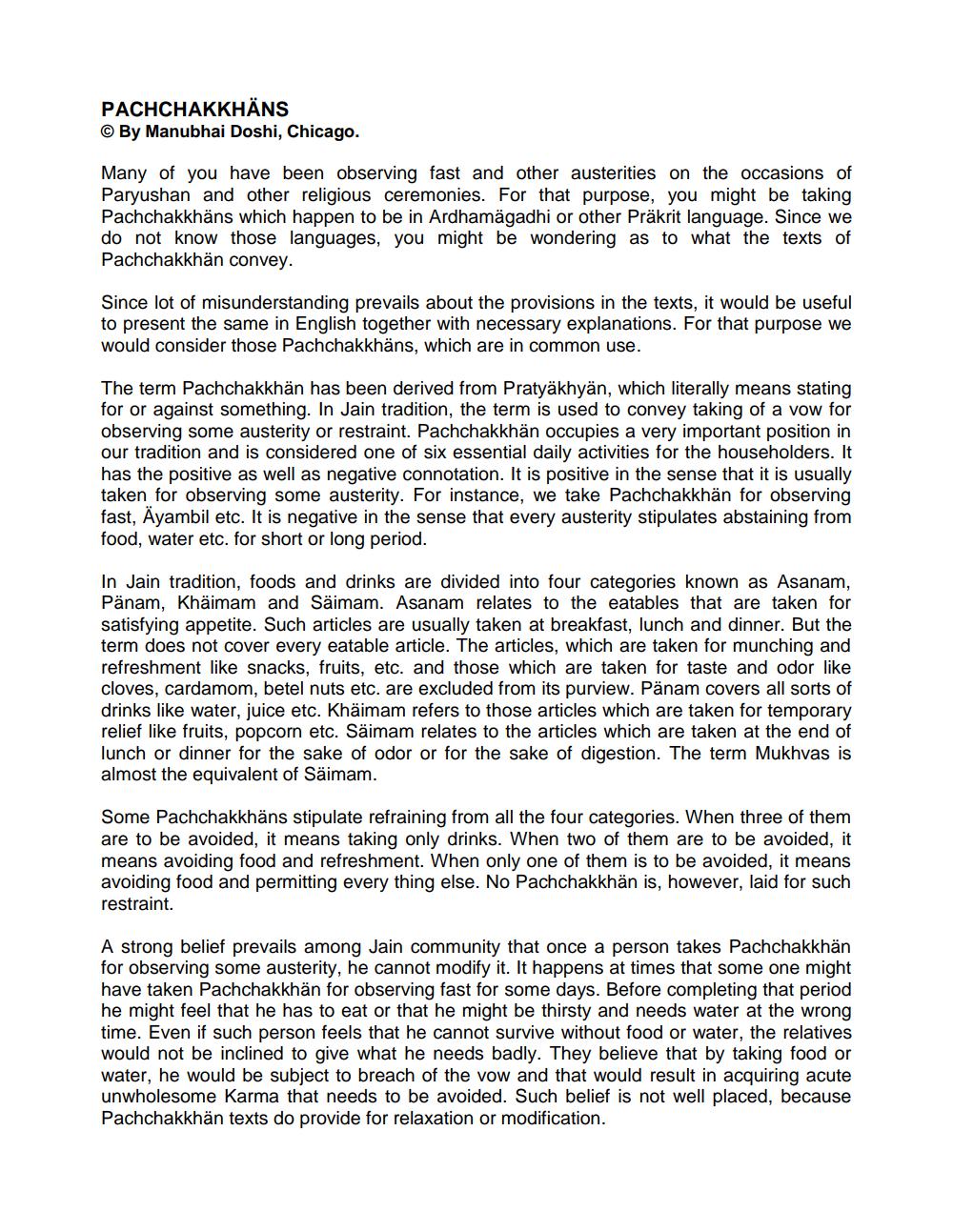________________
PACHCHAKKHÄNS
By Manubhai Doshi, Chicago.
Many of you have been observing fast and other austerities on the occasions of Paryushan and other religious ceremonies. For that purpose, you might be taking Pachchakkhäns which happen to be in Ardhamägadhi or other Präkrit language. Since we do not know those languages, you might be wondering as to what the texts of Pachchakkhän convey.
Since lot of misunderstanding prevails about the provisions in the texts, it would be useful to present the same in English together with necessary explanations. For that purpose we would consider those Pachchakkhäns, which are in common use.
The term Pachchakkhän has been derived from Pratyäkhyän, which literally means stating for or against something. In Jain tradition, the term is used to convey taking of a vow for observing some austerity or restraint. Pachchakkhän occupies a very important position in our tradition and is considered one of six essential daily activities for the householders. It has the positive as well as negative connotation. It is positive in the sense that it is usually taken for observing some austerity. For instance, we take Pachchakkhän for observing fast, Ayambil etc. It is negative in the sense that every austerity stipulates abstaining from food, water etc. for short or long period.
In Jain tradition, foods and drinks are divided into four categories known as Asanam, Pänam, Khäimam and Säimam. Asanam relates to the eatables that are taken for satisfying appetite. Such articles are usually taken at breakfast, lunch and dinner. But the term does not cover every eatable article. The articles, which are taken for munching and refreshment like snacks, fruits, etc. and those which are taken for taste and odor like cloves, cardamom, betel nuts etc. are excluded from its purview. Pänam covers all sorts of drinks like water, juice etc. Khäimam refers to those articles which are taken for temporary relief like fruits, popcorn etc. Säimam relates to the articles which are taken at the end of lunch or dinner for the sake of odor or for the sake of digestion. The term Mukhvas is almost the equivalent of Säimam.
Some Pachchakkhäns stipulate refraining from all the four categories. When three of them are to be avoided, it means taking only drinks. When two of them are to be avoided, it means avoiding food and refreshment. When only one of them is to be avoided, it means avoiding food and permitting every thing else. No Pachchakkhän is, however, laid for such restraint.
A strong belief prevails among Jain community that once a person takes Pachchakkhän for observing some austerity, he cannot modify it. It happens at times that some one might have taken Pachchakkhän for observing fast for some days. Before completing that period he might feel that he has to eat or that he might be thirsty and needs water at the wrong time. Even if such person feels that he cannot survive without food or water, the relatives would not be inclined to give what he needs badly. They believe that by taking food or water, he would be subject to breach of the vow and that would result in acquiring acute unwholesome Karma that needs to be avoided. Such belief is not well placed, because Pachchakkhän texts do provide for relaxation or modification.




